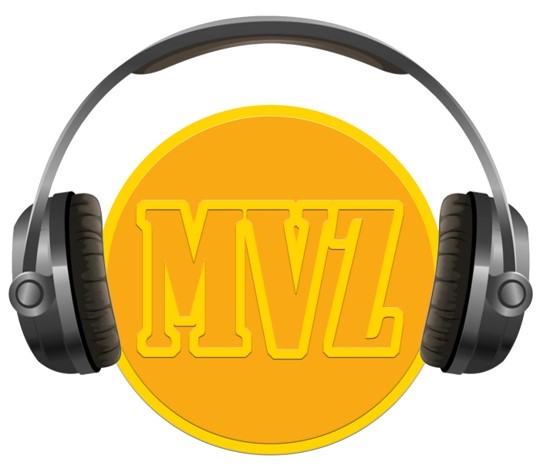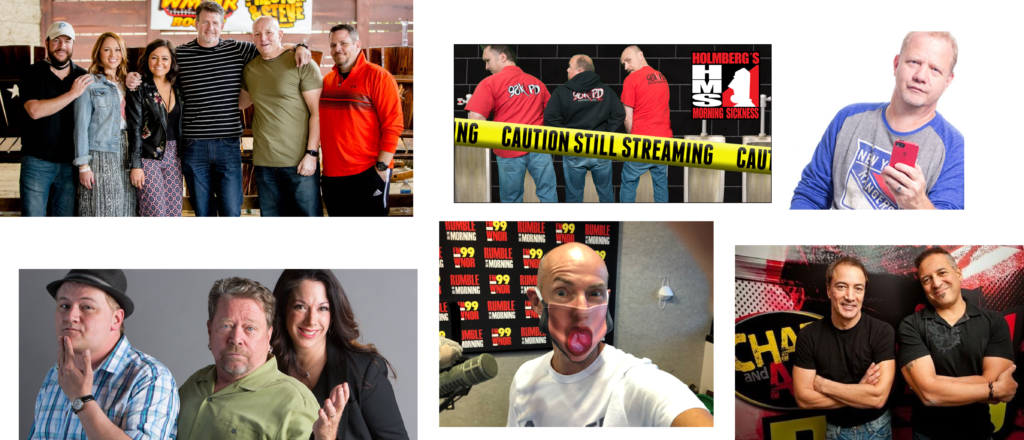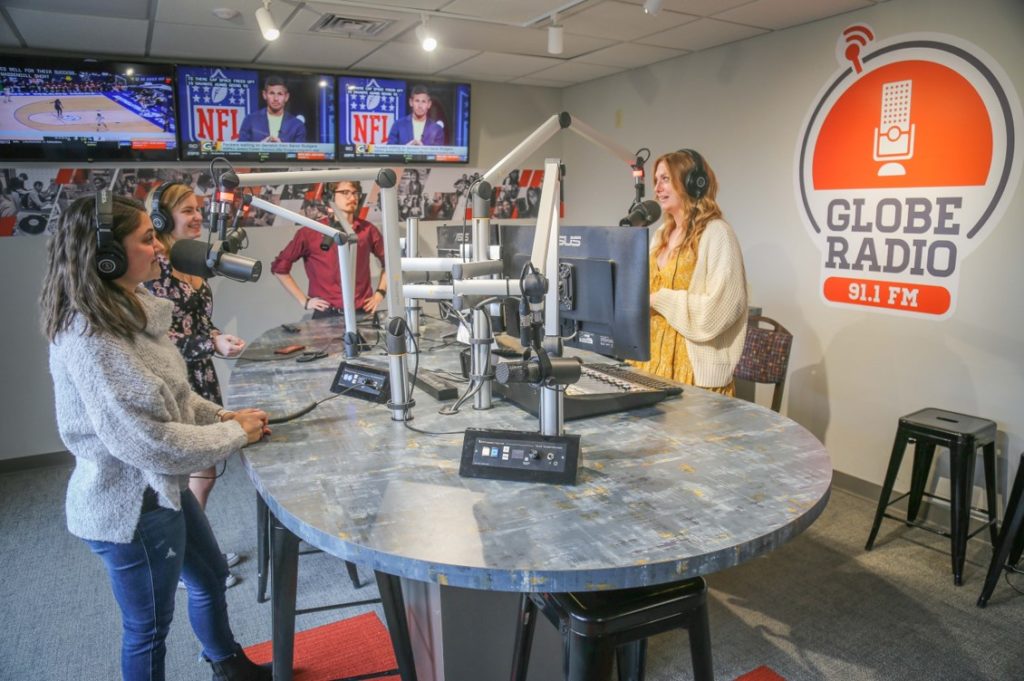
Today’s blog post headline is not a typo. I didn’t mean to say MVP.
Let me explain.
Ask anyone in radio to think of a fabulous syndicated show, and the answer will likely come without much hesitation. It’s not hard to name a number of successful, high-quality national shows with multi-market success. In fact in recent years, there may now be more than ever before.
Now ask that same radio person to name a great local morning show, and few will hesitate to mention a favorite or three. It’s easy. We all know great shows across many different formats in markets big and small, especially shows and hosts that have been “high-performers” for a long time.
Now let’s focus on smaller markets only – how easy is it to quickly point to a superb show? Or even one that’s got lots of potential? It suddenly becomes a tougher task. More and more, stations in markets 100+ aren’t developing talent, instead settling on syndicated options.
Less interest in radio among young people is clearly a stumbling block, a topic we tacked in yesterday’s post. The “Circle of Radio Life” that one way you moved up the ranks in radio has been broken. That pathway from small to medium to large to major markets has been disintermediated. The role that the smallest markets once played in career progression has been greatly diminished, if not eliminated altogether.
But here’s the extra credit question, one that is genuinely a toughie:
Think of a morning show on a college radio station that you’re keeping an eye on for a future opportunity.
OK, I’ll wait…
I’d venture to say you’re likely stumped. They’re out there, all right, but most radio professionals don’t have eyes – or ears – on university towns and more importantly, college radio.
 Back in 2020, a website called Radio Survivor counted 441 college radio stations in the U.S. and Canada, down from more than 600 in 2018. As you no doubt know, these university or college-owned stations have struggled in recent years. And yet, they endure – supported by professors, faculty members, and grad assistants who care. But it’s the thousands of students who are doing more than “playing radio.” Many see radio broadcast as an avocation – a career that excites and motivates them. In many ways, they love radio just as much as we did. But these are different times.
Back in 2020, a website called Radio Survivor counted 441 college radio stations in the U.S. and Canada, down from more than 600 in 2018. As you no doubt know, these university or college-owned stations have struggled in recent years. And yet, they endure – supported by professors, faculty members, and grad assistants who care. But it’s the thousands of students who are doing more than “playing radio.” Many see radio broadcast as an avocation – a career that excites and motivates them. In many ways, they love radio just as much as we did. But these are different times.
Sadly, broadcast radio tends to ignore this farm team of young radio wannabes. On the one hand, we lament how so few Gen Z’s view radio as a viable career path. But on the other, we simply don’t acknowledge just how many college (and high school) students want to be a part of this industry, blemishes and all. Thanks to (mostly) state broadcaster associations, we honor them at the annual banquet, giving them steady rounds of applause and encouragement. And then they go back home to their college towns, and we return to our stations, lamenting how few Gen Z’s view radio as a viable career path.
But the truth is, they’re “out there,” and many dream of a career in radio, no different from many of us.
I learned that lesson earlier this month. On a Throwback Thursday, I reran a post from 2016 titled “Has Your Morning Show Earned MVP Status?” It offered up eight great traits that superstar talent often exude.
Even though it was a “best of” post, I heard from many of you, actively listing favorite shows from the past – a common activity among radio vets recalling those good old days. In the post, I also featured a number of iconic personalities (pictured below), the ones you regularly see honored at industry events – and deservedly so.

But then I checked Twitter, and saw that something was going on in my feed. Someone had the courage to put their show in the spotlight. To my query about whether there’s still great talent out there, someone wrote a “Damn right, there is” post, informing me there’s a great radio ensemble out there I hadn’t heard of.
Yes. And they’re all young and talented. @AmeliaLee___, @dante_stanton, @klopgabi and @Trinitynemeth51 make @911TheGlobe mornings worth a listen.https://t.co/heOFGGy7YO
— Jason (@jasonksamuel) March 3, 2022
My curiosity piqued, I played the video embedded in this response from “Jason.” And I quickly came to realize I was watching a college radio show – on 91.1 The Globe, WGCS.
It turns out “The Breakfast Blend” airs on the Goshen College radio station near the northern border of Indiana, and “Jason” is the show’s faculty advisor. Jason Samuels has worked hands on with these kids for nearly two decades, following a 10-year run in commercial radio.
I love the look and feel of this bit – the visuals, as well as the camera work. And of course, the segment itself – picking out the songs that would “win my heart.” And it wasn’t lost on me most of the songs these teens chose were Classic Rock staples.
“The Breakfast Blend” is hosted by capable sophomore Amelia Lee (Turnbull), and her cast mates Dante Stanton, student station manager Gabriella Klopfenstein, and Trinity Nemeth, a high school student interning at the Globe. Amelia tells me she grew up listening to Classic Rock (credit to her dad).
And last week, the Globe received an impressive honor, being named “Best College Radio Station in the Nation” (for colleges with fewer than 10,000 students) by the Intercollegiate Broadcasting System.

Jason explained to me the rationale behind this station and its mission:
“We strive to be the coolest music station and want our listeners to feel as though they’re on the cutting edge of discovering new music while honoring the influencers of the past.
“The students run the entire station (save the boring paperwork stuff and engineering). My role is to train them in the basics: understanding our audience (35-54), and becoming powerful storytellers with a professional, interesting and informative approach.”
 The results are impressive for the Globe, Samuels, his students, and Goshen College. But the bigger point is that there are hundreds of other college radio stations similar to this one with their own stars in the making.
The results are impressive for the Globe, Samuels, his students, and Goshen College. But the bigger point is that there are hundreds of other college radio stations similar to this one with their own stars in the making.
You don’t have to sell these kids on the benefits of going into radio. They’re already SOLD.
What we need to do as an industry is support their dreams. And at the same time, support broadcast radio’s future here in the U.S.
They’re “at it” every day, training for that career in commercial, public, or Christian radio. But in the world of professional radio broadcasting, most of these stations and their talented, motivated kids are flying under the radar. It’s like the NFL not paying a whole lot of attention to football at the college level. Preposterous, right?
More on that in tomorrow’s post.
- The Exponential Value of Nurturing Radio Superfans - April 28, 2025
- What To Do If Your Radio Station Goes Through A Midlife Crisis - April 25, 2025
- A 2020 Lesson?It Could All Be Gone In A Flash - April 24, 2025




I’m listening to the Lauren and Lily show right now. On WZBC 90.3 FM out of Boston College. They’re a very fun listen. There’s live chat on the playlist, I’m going to ask them right now if they would ever want to work in professional commercial radio. Stand by.
“they’ll get back to me.”
FWIW in the 40 years I’ve been involved at this college station, the student interest in getting on the air to play music has never been as strong as right now. However I’ve detected very little interest in getting into commercial radio. I know 2 people who did pursue commercial radio careers out of WZBC. But that’s it. There are many engaging personalities on this station, who discuss current topics in a roundtable format. They also play great music, most of it new. But when they graduate, they’ll pursue lucrative careers in growing industries like technology, investments, marketing, etc.
And so if commercial radio supports programs like yours, maybe we can write a different narrative, Jeff. Thanks for the comment, and all you do.
Similar to what Jason and his team are doing in Indiana, I am so grateful to be a part of Northwestern Media, and watching the Communications Department raise up the next generation of radio communicators at University of Northwestern – St. Paul. They are hungry! And through our partnerships we are able to give them opportunities to voice track on Northwestern Media stations and get real world experience as they prepare for their careers. Pretty awesome to watch them grow!
Thanks for the sotry, Matthew, and for all you do.
Good and timely post, Fred. It’s not new, though. Some fifty years ago, I was one of those kids behind the mic at a college station (KALX, Berkeley), and I would have been delighted to get a leg up at any of the commercial stations around northern California. Sent out my airchecks and applications–deafening silence. So I moved on to jobs I could actually get, and my future radio gigs were all in the public sphere. That was fun and very rewarding, albeit not monetarily. How different my life might have been if someone had responded.
It’s often a matter of support and opportunity, John. And we have a chance to make a difference now. By helping radio’s next generation of stars, we’re helping our industry.
I think you meant to write vocation instead of “avocation?”
Hey, Rob. I meant to use it. It’s like a job/hobby you feel passionate about. But I could’ve used “vocation,” too.